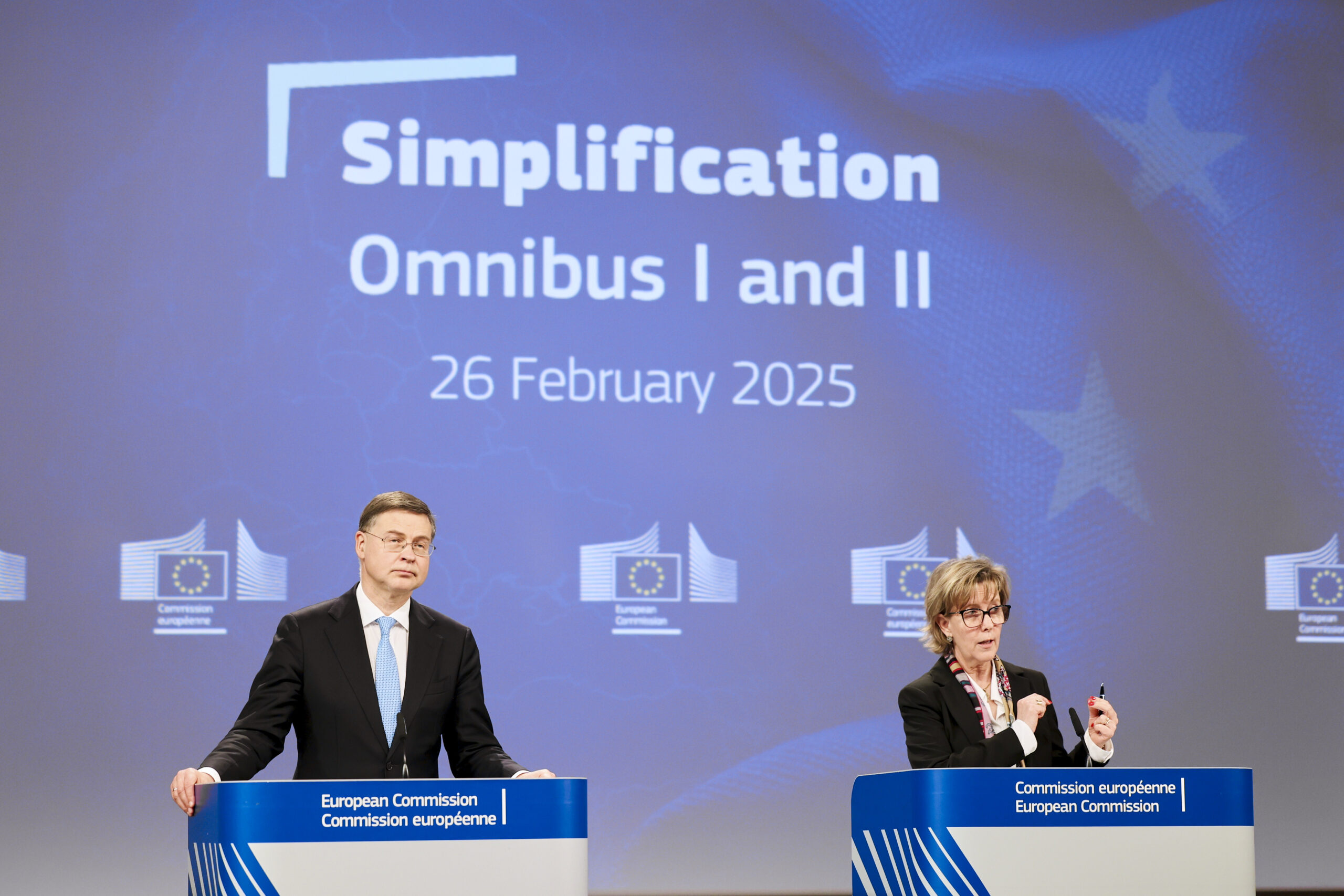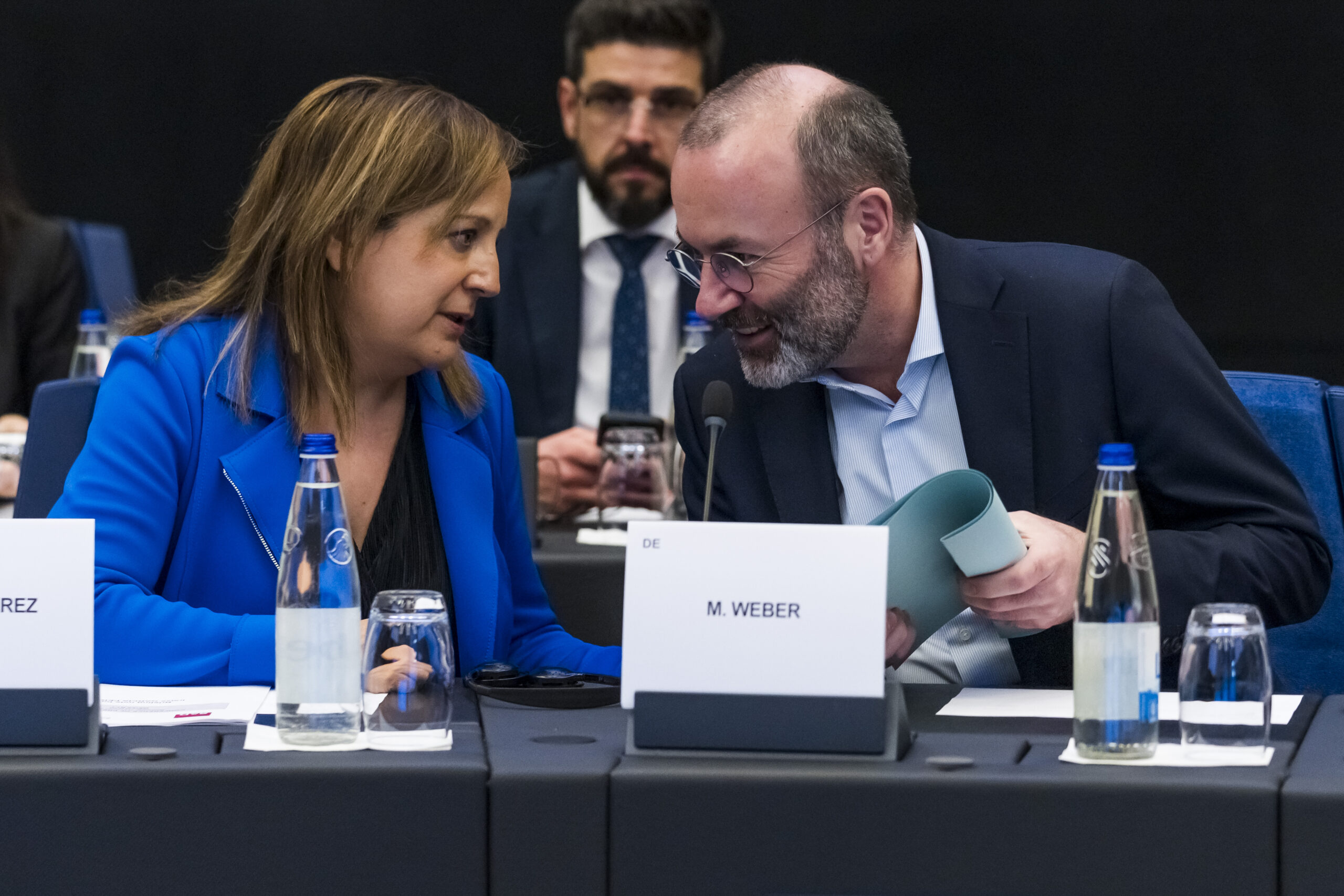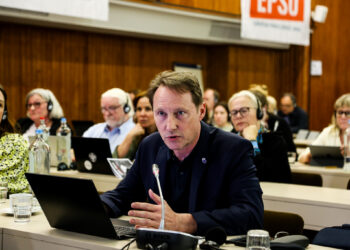Brussels – The European Union is about to put in the drawer two important directives related to the Green Deal, laboriously approved before the change of legislature, in the name of simplification. After the green light from member countries to the two-year postponement of social and environmental reporting obligations (CSRD) and one-year postponement of corporate due diligence rules, it is now the turn of the EU Parliament, which next week will vote on the okay of the urgency procedure and—if it approves it—on the postponement proposal.
Political groups are negotiating, not so much on moving the implementation of the directives forward, on which they all agree by now, but on substantive changes to the rules already put on the plate by the European Commission with the “Omnibus I” simplification package last February 26. In fact, in the package, there is not only the renamed “Stop the clock” proposal, which freezes the deadlines for complying with the directives. The Omnibus also includes a proposal to lighten the content and requirements of due diligence and sustainability reporting.
The EU Council, in giving its approval to the urgent postponement of the directives, stressed that “any early agreement among the co-legislators will allow them time to agree on substantial changes to the CSRD and CSDDD.” In essence, the EU executive has proposed to remove about 80 per cent of companies from the scope of the directive on corporate sustainability reporting to focus on the largest companies with the greatest impact on the environment and society. A proposal that divides the political groups in the “Ursula majority”.

It is useful to rewind the tape: The two laws had a troubled path, with backtracking by member countries when agreement had already been reached and subsequent attempts to water them down. In the end, the co-legislators agreed that the social reporting standards would apply to all large companies, whether publicly traded or not, and, later, to listed small and medium-sized companies. More complex is the subject of the requirements on monitoring and mitigating companies’ negative impact on the entire chain of industrial activity, from which, after exhausting negotiations, companies with fewer than 1,000 employees and 450 million in turnover have already been excluded.
The referral proposal calls for CSRD to be complied with from 2027 (instead of this year) and CSDDD from 2028 (instead of 2027). That’s why Brussels is proceeding at full speed: The enforcement of the directives is already around the corner. On Tuesday (April 1), MEPs will decide by a voice vote whether to apply the urgency procedure and vote on the referral—this time by roll call—as early as two days later, on Thursday, April 3.
The European People’s Party, the largest group in the EU Parliament and the lynchpin of any majority, has been clear that it will not stop at a simple time slip. “We will change these standards; there is a large majority in Parliament that wants to simplify them,” Daniel Köster, spokesman for the Christian Democrats, said today. Köster added that “there have been positive talks” with several political groups, pointing out that the EPP “is looking for a majority in the centre of Parliament.”
Starting with the Social Democrats, who, however, don’t look favourably on excessive deregulation and who—to support the postponement of the two green directives—would like guarantees on subsequent modifications.

“We are negotiating; we are constructive and optimistic that we will reach an agreement,” says the S&D group. Democratic Party MEP Brando Benifei explained that a discussion is underway in the Socialist Group “to understand how to avoid the coagulation of a majority on the right to damage social and environmental issues,” and in parallel, a “discussion with other groups to avoid a drift to the right.”
Regardless of the EPP’s willingness to seek majorities in the centre, right-wingers have pledged their support to take a stab at the two measures. According to the Conservatives and Reformists (ECR), the postponement “is only a first step” because “reporting requirements in their current form are disproportionate and harmful to competitiveness.” For Patriots for Europe, businesses “want real simplification, fair rules and less red tape, and an end to ideological regulations.” The spokesman for the sovereignist group, Alonso De Mendoza, winked at the populars: “We don’t care about political labels; we care about results. Let’s work together,” he said.
After all, there is already a majority on the right in the European Parliament, the so-called Venezuela majority. All it takes is for the 188 popular MEPs to vote compactly with the most extreme parties. “The problem is not only the right because it finds a majority if the Popular Party supports it. We will try to call the EPP back to the commitment of past years,” admitted Green MEP Ignazio Marino. While accusing the European Commission of “creating chaos and uncertainty for businesses,” the Green group said it was “open to dialogue and negotiation with democratic forces.”
English version by the Translation Service of Withub
![Il commissario per il Commercio, Maros Sefcovic, durante il dibattito d'Aula sulla politica Usa dei dazi [Strasburgo, 6 maggio 2025]](https://www.eunews.it/wp-content/uploads/2025/05/sefcovic-dazi-350x250.png)








